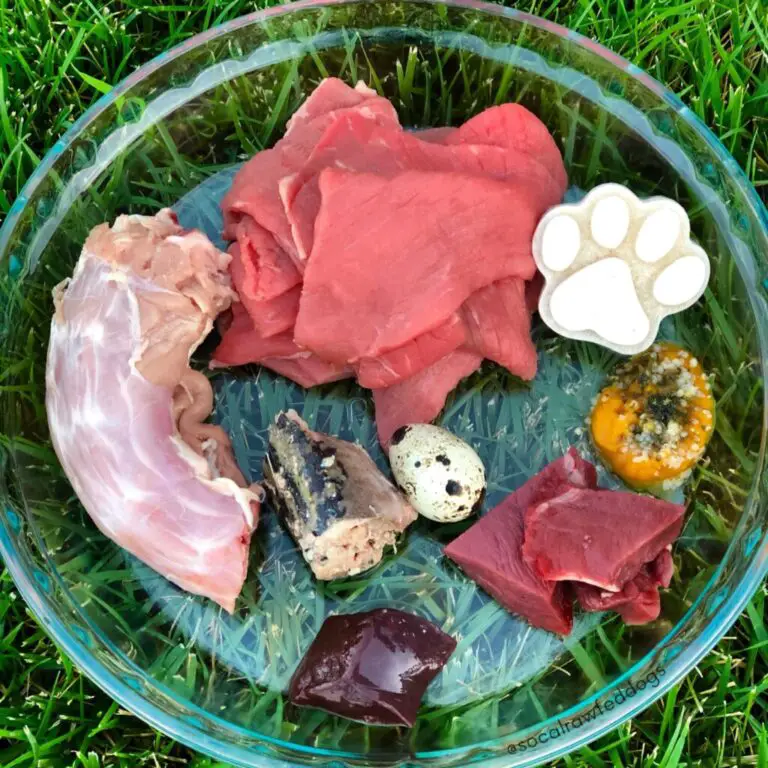Ensuring a Balanced Diet for Your Dog: Easy Tips for Optimal Nutrition
We all want the best for our furry companions, and one of the most critical components of their overall health and well-being is their diet. Just like humans, dogs must maintain a balanced diet to thrive and live a long, healthy life. With the plethora of dog food options and nutritional advice available, it can be overwhelming to determine what’s best for your four-legged friend. This blog post is crafted to guide you through an optimal diet plan for your dog, catering to their unique needs and keeping them happy and healthy.

Understanding Your Dog’s Nutritional Needs
Before creating a dietary plan for your dog, it is crucial to have an understanding of their inherent nutritional requirements. Here, we’ll dig into what nutrients your dog needs and where they can be found.
Essential Nutrients and Their Sources
Proteins, fats, carbohydrates, vitamins, minerals, and water are all crucial for a dog’s health. Proteins provide the building blocks for strong muscles. Fats are a source of energy and aid in nutrient absorption. Carbohydrates are additional energy providers. Vitamins and minerals regulate body processes and support immune health. Water is essential for proper digestion, nutrient transport, and temperature regulation.
The Role of a Veterinarian
A veterinarian is your go-to resource for tailored nutritional advice. They can recommend a diet based on your dog’s breed, age, size, activity level, and any existing health conditions. Remember, what works for one dog may not be beneficial for another.
Choosing the Right Dog Food
The market is brimming with various kinds of dog food, each claiming to be the healthiest. But how do you sift through the options and make the best choice for your pup?
Evaluating Different Types of Dog Food
Dry dog food, also known as kibble, is convenient and has a longer shelf life. Wet food has higher water content and can be more palatable. Some pet owners prefer raw diets, claiming it mimics a dog’s ancestral eating patterns. Each type has its benefits, so it’s important to pick one that aligns with your dog’s needs and your lifestyle.
Deciphering Dog Food Labels
Understanding how to read dog food labels can help you make informed decisions. Look for whole foods, identifiable protein sources, and a balance of nutrients. Avoid foods that list vague ingredients or overly processed fillers.
Portion Control and Feeding Schedules
The amount and timing of your dog’s meals play a significant role in their health and weight management.
Determining Portion Size
Portion size should be calculated based on your dog’s caloric needs, which vary depending on factors such as age, weight, and activity level. Your vet can help you determine the correct portion for your dog’s daily meals.
Setting Up a Feeding Schedule
Consistency in feeding times helps regulate your dog’s metabolism and reduces the risk of bloating, a potentially fatal condition. Active dogs may need several small meals throughout the day, while less active dogs can manage with one or two.
The Role of Treats in a Balanced Diet
Treats are a great way to reward good behavior and strengthen the bond between you and your pet. However, they also add up to the daily calorie count.
Moderation Is Key
Treats should not exceed 10% of your dog’s daily calorie intake. If you wish to offer multiple treats, adjust the meal portions accordingly to avoid overfeeding.
Choosing Healthy Treats
Opt for treats that add nutritional value to your dog’s diet. Fresh vegetables, certain fruits, and commercial treats that prioritize real, healthy ingredients are good options.

Special Dietary Considerations
Some dogs require special diets to manage health conditions or allergies.
Allergies and Intolerances
If you suspect your dog has allergies or food sensitivities, your vet may recommend an elimination diet to identify the cause. Common allergens include beef, dairy, wheat, and chicken.
Weight Management
Obesity is a growing concern among pets. Tailor your dog’s diet to maintain a healthy weight by managing portions and choosing foods with lower calorie content. Regular exercise also contributes to weight control.
Additional Tips for Optimal Nutrition
Beyond food, there are other factors that contribute to a dog’s overall nutritional health.
Regular Exercise
Physical activity is essential for dogs to maintain a healthy weight and to prevent health issues associated with inactivity. Tailor the exercise routine to your dog’s energy levels and capabilities.
Hydration
Always ensure your dog has access to clean, fresh water. Dehydration can lead to serious health issues, so monitor their water intake, especially during warmer weather or after strenuous activity.
Conclusion
Ensuring that your dog receives optimal nutrition is a duty of love for pet owners. Balancing their diet with the right types and amounts of food coupled with regular exercise and proper hydration will promote a long, energetic, and happy life for your beloved canine companion. Consult with a veterinarian, be mindful of portion sizes, choose quality foods, and mind the impact of treats. Your dog’s diet is a critical health investment, and with these easy tips, you’re already setting them on the path to a nutritious lifestyle.
For more information on tailored dietary plans for your dog, we encourage a consultation with a registered animal nutritionist or your local vet. Together, we can ensure our canine friends enjoy the best possible diet for a vibrant and enduring quality of life.







